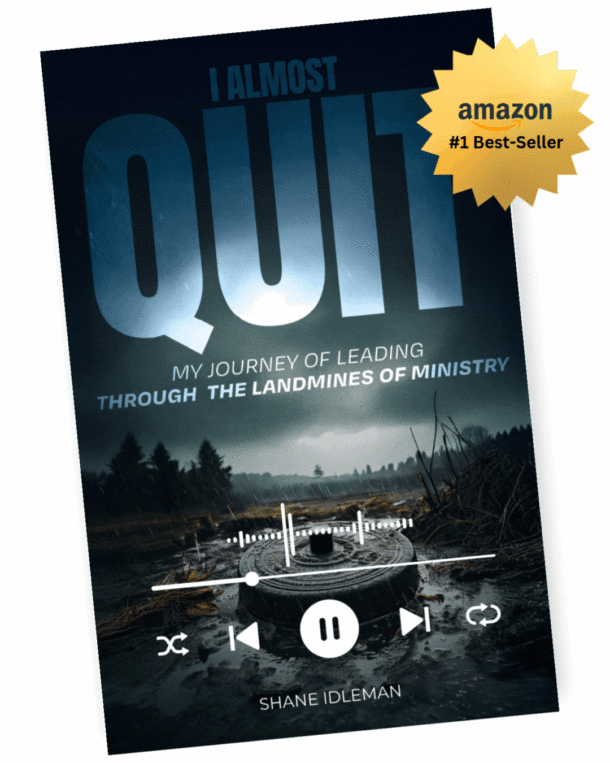Over the next few weeks, Shane is revisiting articles that drew the most feedback in 2010. Here is number four…
Many today argue that we can’t preach with authority because we need to have a flexible approach to all aspects of theology. By “flexible” they mean accommodating all beliefs, but truth is not “flexible” when it comes to absolutes; it’s solid and unyielding—an anchor. Truth liberates. Truth rebuilds. Truth restores. Truth heals. Truth transforms. Truth prevails…you don’t change truth; truth changes you!
During The Yale Lectures on Preaching (1891) by James Stalker, Stalker rightly noted Martin Luther’s list of qualifications for being a minister. Two of the top ten were: 1) “He should be sure of what he means to say.” 2) “And be ready to stake body and soul, goods and reputation, on its truth.” Luther, Calvin, Zwingli, Knox, and many more, flamed the fires of reformation with the truth.
God has clearly called preachers to preach. “Preaching is never something that a man decides to do. What happens rather is that he becomes conscious of a call” (D. Martyn Lloyd-Jones). When God calls a person He gives them authority and power to proclaim His truth—“the kingdom of God is not in word, but in power.”
For example, in the classic book, The Calvinistic Methodist Fathers of Wales, the author says this about the famous preacher, Griffith Jones, who preached during the Welsh revivals of the 18th century: “The tears [of the congregation] began to flow in streams down their cheeks. Soon, they wept openly, and cried out, ‘What shall we do to be saved?’”
It was also not uncommon for people to weep profusely as they sought Christ and shout for joy when they found Him under the anointed preaching of George Whitefield (1714-1770). Whitefield was the primary evangelist during the Great Awakening that occurred in the mid 1700s.
Without the unction of the Holy Spirit, preaching has little effect on the hearer, and we may find ourselves in the same place as Samson—“he knew not that the Spirit of the Lord had departed from him.”
I’ve heard sermons from many postmodern and emerging leaders, and I’ve heard countless sermons from people such as John Piper, James MacDonald, Alistair Begg, Paul Washer, David Jeremiah, Jack Graham, John MacArthur, Ravi Zacharias, and so on; it’s amazing to hear the difference. The former speak as “advocates”—dialoguing, discussing, and pondering everything; the later speak as “witnesses” overcome by the magnificent power of God’s Word. Authority matters!
Churches have always served as the moral compass—to confront, challenge, and contend for the truth. But through the years, we’ve drifted from being confrontational to being popular. Richard Owen Roberts said it well, “The Lord has been so deeply grieved by the refusal of the church to faithfully proclaim the whole counsel of His word in the power of the Holy Spirit that He has largely withdrawn from the church and left her to her own devices.”
God’s churches, and His leaders, are to be pillars who support truth; not who oppose it. We’d do well to revisit Jeremiah 23 regularly: “‘Woe to the shepherds who destroy and scatter the sheep of My pasture!’ Says the Lord…they also strengthen the hands of evildoers, so that no one turns back from his wickedness…and to everyone who walks according to the dictates of his own heart, they say, ‘No evil shall come upon you’…”
“I have not sent these prophets, yet they ran. I have not spoken to them, yet they prophesied…but if they had stood in My counsel, and caused My people to hear My words, then they would have turned them from their evil way…therefore, they shall not profit this people at all, says the Lord” (Jeremiah 23:1-32).
These leaders, like many today, have “perverted the words of the living God” by not warning, instructing, challenging and contending for the faith. As I said last week: Foundational truths are often neglected, watered-down, or avoided altogether in the hope of “not offending,” “securing an audience,” or being “user-friendly.” Judgment is never mentioned; repentance is never sought; and sin is often excused. This leaves people confused and deceived because they believe in a cross-less Christianity that bears no resemblance to Jesus’ sobering call to repentance.
Let it not be said of us today: And there arose another generation after them who did not know the Lord because leaders failed to proclaim the truth of God’s Word (Judges 2:10). The burden of responsibility rests squarely upon our shoulders. It’s our choice—stand, or fall!

